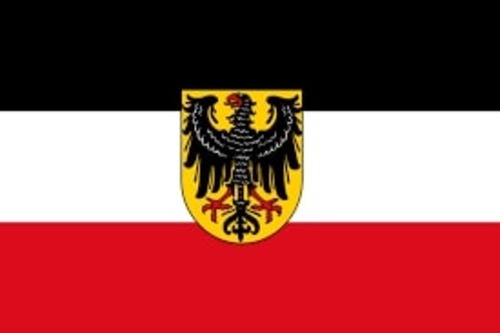Is Germany tiptoeing towards a modern Weimar drama, flirting with the chaos of ungovernability? The stage is set as a cast of new political players takes the spotlight in recent months.
For those unfamiliar, the Weimar Republic, born from the ashes of World War I’s defeat, experienced a tragic fate. Humiliated by the Treaty of Versailles and crippled by hyperinflation, Germany faced economic despair and political fragmentation. A multi-party parliament, breeding instability and extremism, became a battleground for communists and Nazis who deemed democracy ineffective. Authoritarian echoes persisted, fostering a yearning for centralized order, while the fledgling government struggled amid the Great Depression. The flawed constitution itself, in a perfect storm of historical burdens, economic woes, political instability, and societal divisions, paved the way for the erosion of democratic checks and balances. The Nazi Party’s totalitarian promises found fertile ground, extinguishing the fragile flame of democracy in 1933.
Join us on Telegram: https://t.me/tfiglobal
In the interwar period, the Reichstag saw representation from over 40 different parties; presently, contemporary Germany is witnessing a comparable surge in party registrations. While the majority lean towards populism, this diverse cohort includes parties from both the Left and the Right, with one specifically targeting Germans with a Muslim-migrant background.
On the Right, Hans-Georg Maaßen, the former head of Germany’s domestic intelligence service, is making significant strides. A longtime member of Angela Merkel’s Christian Democrats (CDU), Maaßen faced job loss in 2018 over perceived downplaying of Right-wing violence in Chemnitz. Previously marginalized within the CDU, he, along with the Values Union (WerteUnion), announced the formation of a new conservative-liberal party to contest German elections.
The Values Union (WerteUnion), initially a splinter faction within the CDU opposing Chancellor Merkel’s Leftward shift, has evolved into an independent political movement. Not only positioning itself as a potential alternative to the AfD, a self-styled alternative to established parties, it also demonstrates a willingness to cooperate with the AfD, disregarding the CDU-decreed “firewall” against such collaboration.
The Alternative for Germany (AfD) is a right-wing populist political party in Germany, founded in 2013 and has since become the third-largest party in the Bundestag. The AfD’s platform is based on opposition to immigration, Islam, and the European Union and its popularity has been increasing in recent years. In the 2017 federal election, the party won 12.6% of the vote, up from 4.7% in the 2013 election. The AfD is currently polling at around 13% and is expected to do well in the next federal election, which is scheduled for 2025.
While there are a number of factors contributing to the AfD’s growing popularity, the left-wing seems to be worried that the party could undermine the country’s commitment to liberal values.
Read More: After next Election, Germany can quit the EU
The splintering trend extends beyond the conservative party. Adding to Germany’s political divide is Sahra Wagenknecht. She was with the hard-left Die Linke but left to start a new left-populist party, Bündnis Sahra Wagenknecht. This party is getting around 14% support in early polls, attracting some voters who also like the AfD. Together, this left-right opposition could get more than one-third of the votes.
Last year, Die Linke (The Left) experienced the departure of its prominent member, Sahra Wagenknecht, to a new party named after her. This new political entity aims to leverage the popularity of the Left-wing firebrand. Wagenknecht’s appeal, especially to East Germans, stems from her blend of nostalgia for the German Democratic Republic and the welfare state, coupled with calls for a more restrictive migration policy and an end to arms deliveries for Ukraine.
Indeed, parsing through her speeches, it becomes challenging to pinpoint substantial differences from the AfD. Both Wagenknecht and Maaßen strive to present themselves as milder iterations of the Alternative for Germany, casting their nets in the same voter pool. This demographic is expanding, fueled by widespread discontent with the existing traffic-light coalition comprising the Social Democrats, Greens, and the Liberal Party. While federal elections are not imminent in Germany, except for the EU Parliament votes in the summer, the two emerging parties stand a realistic chance of securing seats in three upcoming state elections this autumn.
Moreover, an unexpected entrant has joined the scene: a recently established party named Alliance for Diversity and Awakening (DAVA), which aims to garner support in the upcoming EU elections. This party is being described by the media outlet Bild as an extension of the Justice and Development Party (AKP) of the Turkish President Recep Tayyip Erdogan. Led by individuals closely affiliated with backers of Recep Tayyip Erdogan and various Islamist movements, the party seeks to appeal to the 3.2 million Germans with Turkish backgrounds. While not yet featured in any polls, there is a potential scenario where the upcoming EU parliament might include members openly sympathetic to Islamist ideology while officially representing Germany in Brussels.
Read More: Erdogan- the next Chancellor of Germany
The establishment of DAVA comes in the wake of President Erdogan’s expressed dissatisfaction in July regarding Turkey’s prolonged EU accession process, which commenced with an official application in 1987. The report highlights the linkage between AKP and DAVA, positioning the latter as a political force in Germany aligned with President Erdogan’s party.
While the current discourse lacks sentiments reminiscent of the historical period where communists and national socialists called for the end of democracy, there is a growing concern that such sentiments are brewing on the horizon.
Nevertheless, German democracy is not a perfectly arranged bouquet but rather a workshop resonating with hammering, welding, and clamor. Periodically, someone must step forward with a broom to tidy up the space. This surge of new parties reflects the German populace’s eagerness to identify such a figure and address the evolving political landscape.
